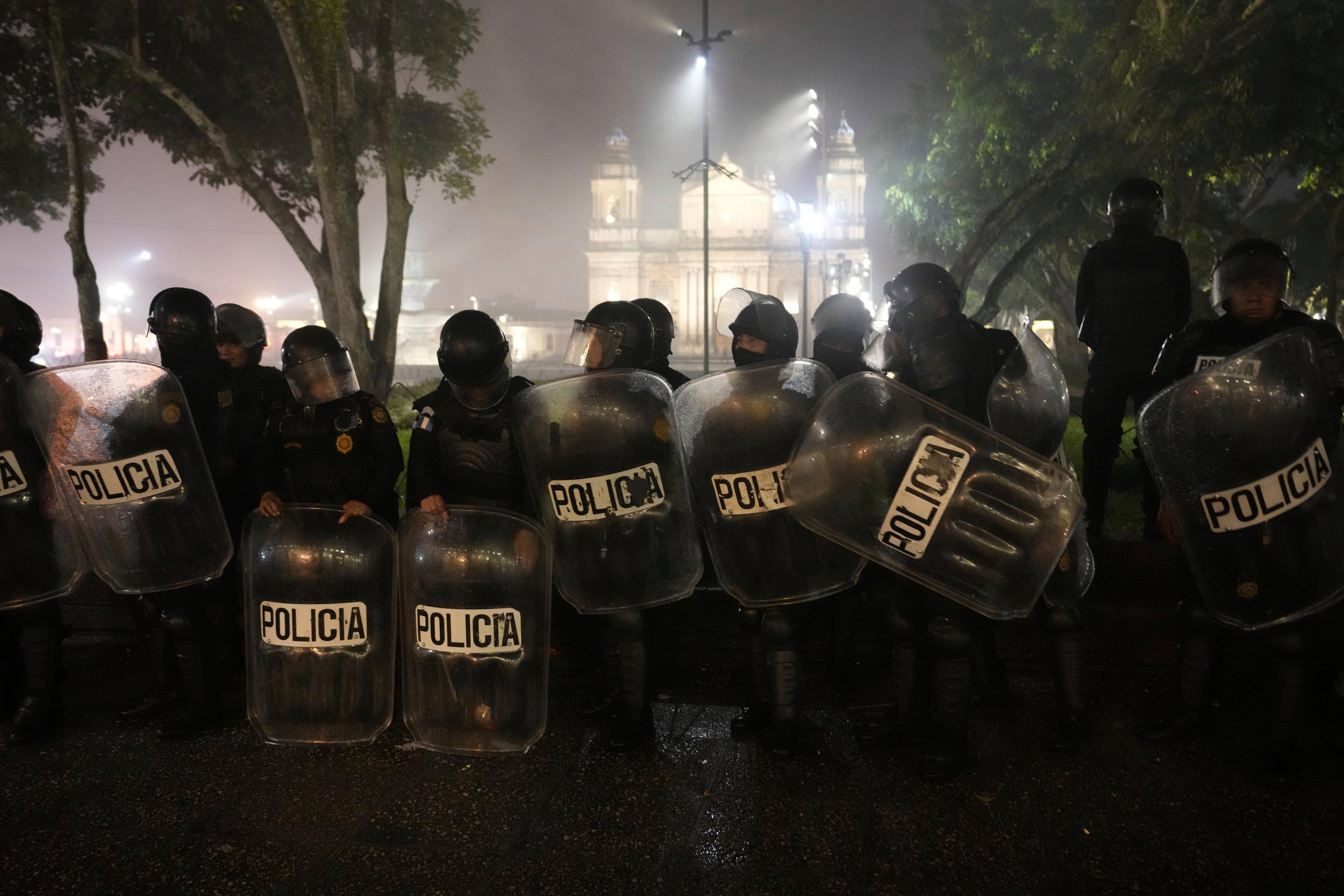Guatemala Cabinet minister steps down after criticism for not acting forcefully against protesters
The sudden resignation of a Guatemalan cabinet minister appears to signal a division within the administration of President of Alejandro Giammattei over how to remove the protest roadblocks that have stretched into their third week

The sudden resignation of a Guatemalan Cabinet minister appears to signal a division within the administration of President Alejandro Giammattei over how to remove the protest roadblocks that have stretched into their third week.
Interior Minister Napoleón Barrientos, a retired brigadier general, resigned late on Monday following a shooting near one of the roadblocks that one person dead and two others wounded.
Barrientos had said publicly that he preferred to seek dialogue with protesters who have demanded the resignation of Attorney General Consuelo Porras over her office’s ongoing investigations into the election of President-elect Bernardo Arévalo.
Porras, on the other hand, had called for the blockades’ immediate removal with force if necessary and Monday, hours before Barrientos’ resignation, had called for him to be fired for not heeding a court order to clear them.
Those responsible for Monday's shooting were not immediately identified, but Barrientos’ Interior Ministry condemned the violence in a statement hours before the government confirmed his resignation.
Barrientos has not commented publicly on his reasons for stepping down and did not immediately respond to requests for comments from the AP.
Days earlier, however, responding to a hypothetical question from a local news outlet about what could lead him to resign his position, Barrientos said that a demand to follow illegal orders would do it.
Francisco Jiménez, a security expert who once held the same position Barrientos did, viewed the resignation from the prospective of the use of public force and the recognition of the right to protest. He said Barrientos’ actions “have been within the normative framework and protocols of the National Civil Police, based on the proportional use of force, something that has not been liked by various sectors.”
The government had moved more aggressively against a couple of the roadblocks last week, including deploying riot police with tear gas, following public expressions of frustration from Giammattei. There are far fewer roadblocks now than there were a week ago, but the Indigenous groups that initiated the protests say they will maintain them until Porras and some of her prosecutors resign. They see their investigations as interfering with voters’ decision and a threat to Guatemala’s democracy.
Giammattei has not named a replacement, but Barrientos’ departure has raised concerns that whoever follows to serve out the remaining three months of Giammattei’s term could bring more heavy-handed tactics.
Mario Mérida, a retired colonel and security expert, said that in the wake of Guatemala’s 36-year civil war, the military has a better understanding of how its actions against civilians are viewed.
“In the past, the decisions and criteria used by the military were more authoritarian than rational,” he said. So now, with that experience, taking decisions as a public official “is complicated.”
Mérida said there could be multiple explanations for Barrientos' resignation, including stepping down to avoid being fired and to avoid being pressured into taking illegal actions that could lead to criminal prosecution later. Barrientos’ departure showed “weakness” in Giammattei’s administration with little time remaining.
____
Follow AP’s coverage of Latin America and the Caribbean at https://apnews.com/hub/latin-america
Bookmark popover
Removed from bookmarks